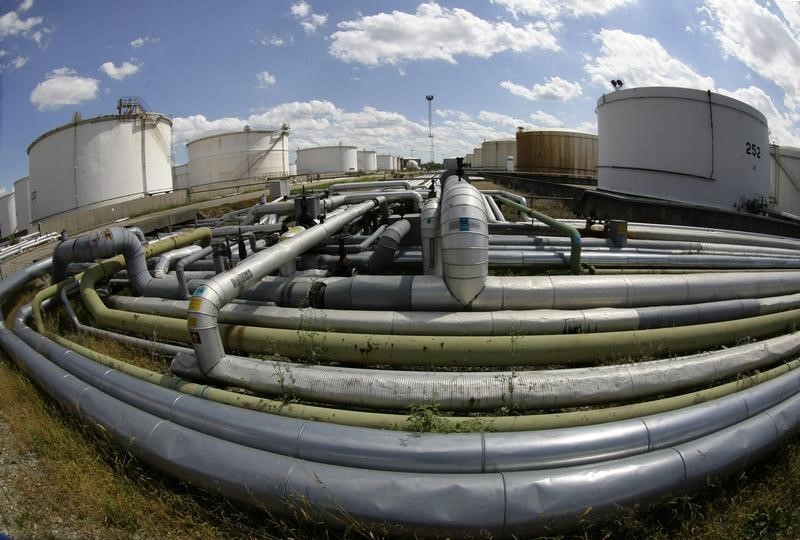By Alastair Sharp
TORONTO, Nov 10 (Reuters) - Sarnia, Ontario, home to dozens of Canada's refineries and chemical plants, is lobbying hard to lure a biotech plant to the city as the local petrochemical-powered economy braces for the impact of a provincial carbon-pricing scheme.
BioAmber Inc BIOA.N - which turns corn syrup into an ingredient used to make plastics, food flavoring and cosmetics that would otherwise come from fossil fuels - has already built its first production plant in the city.
The company is now weighing whether to build a second facility there that is six times bigger than its first, or set up shop in Louisiana, a $500 million decision expected early next year.
Sarnia officials say they are keen to diversify a local economy that is heavily reliant upon the refining and chemical complex dubbed "chemical valley," a major source of carbon emissions.
The industry faces rising costs as the federal and some provincial governments in Canada push for an escalating price on carbon, while pledging to use tax dollars to support green industries.
By contrast, U.S. President-elect Donald Trump has called global warming a hoax.
"If they want to make the carbon price and the green economy work, they've got to invest in places like Sarnia," said Sarnia Mayor Mike Bradley.
BioAmber says it is looking for a counter-offer to the $360 million loan guarantee it is seeking from the U.S. Department of Energy to build in Louisiana.
"We're still going both ways, because we don't know which side of the border may do a better package," said Mike Hartmann, a BioAmber executive. "The U.S. plan is advantageous because it's a one-stop shop, and Canada and Ontario are a bit more fragmented."
Canada and Ontario government officials declined to specify what they might offer, citing commercial sensitivities.
BioAmber's first plant, partly owned by Mitsui & Co 8031.T , was built using C$50 million ($37 million) of federal and provincial support, including grants and loans.
Canada has promised more than C$1 billion of clean tech support for industry over four years starting in 2017-18, while Ontario has pledged up to C$235 million to help boost its clean tech sector between 2016 and 2020.
Trump's win should be a "wake-up call" that the Canadian industry will need more government support, Bob Masterson, head of the Chemistry Industry Association of Canada.
Sarnia may seem an unlikely place for a green reinvention. The city and next-door Corunna are home to plants owned by Nova Chemicals Corp INPTVN.UL , Imperial Oil Ltd IMO.TO and Suncor Energy Inc SU.TO .
The area accounted for about 16 percent of Ontario's reported industrial emissions in 2014, according to government data.
But that heavy reliance on fossil fuels in a jurisdiction with toughening emission rules offers a hint of what other parts of the country can expect as the federal government pushes for a national price on carbon. is going to be one of those places where you will really start to see the industrial transition take shape," said Sarah Petrevan, a policy advisor at climate policy think tank Clean Energy Canada. ($1 = 1.3471 Canadian dollars) (Editing by G Crosse)
